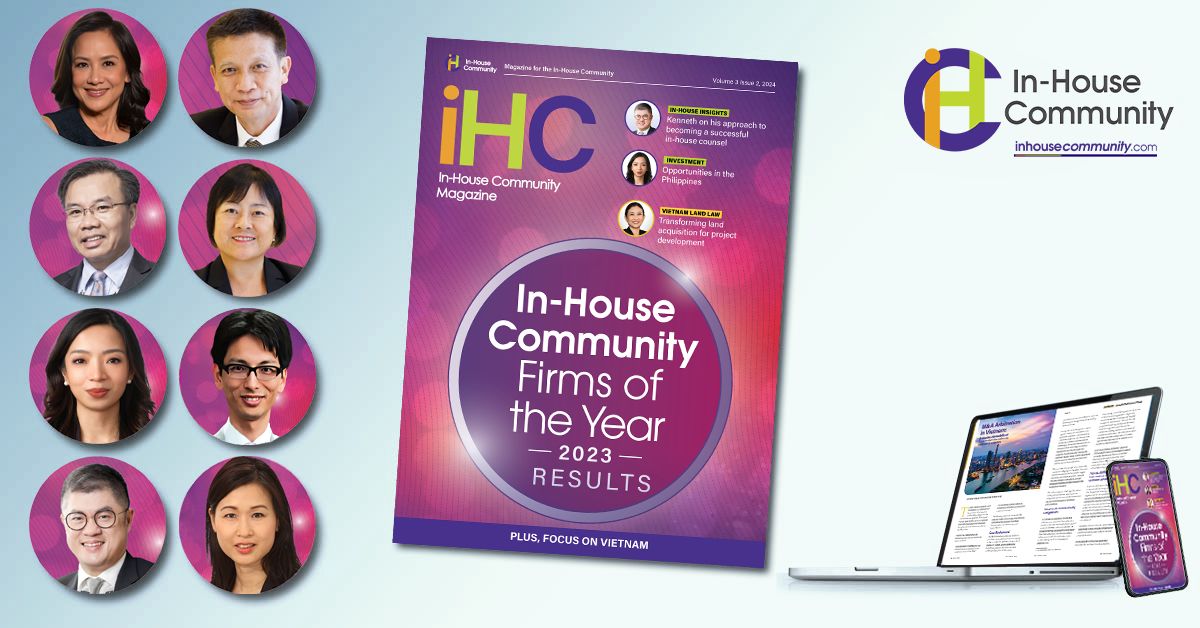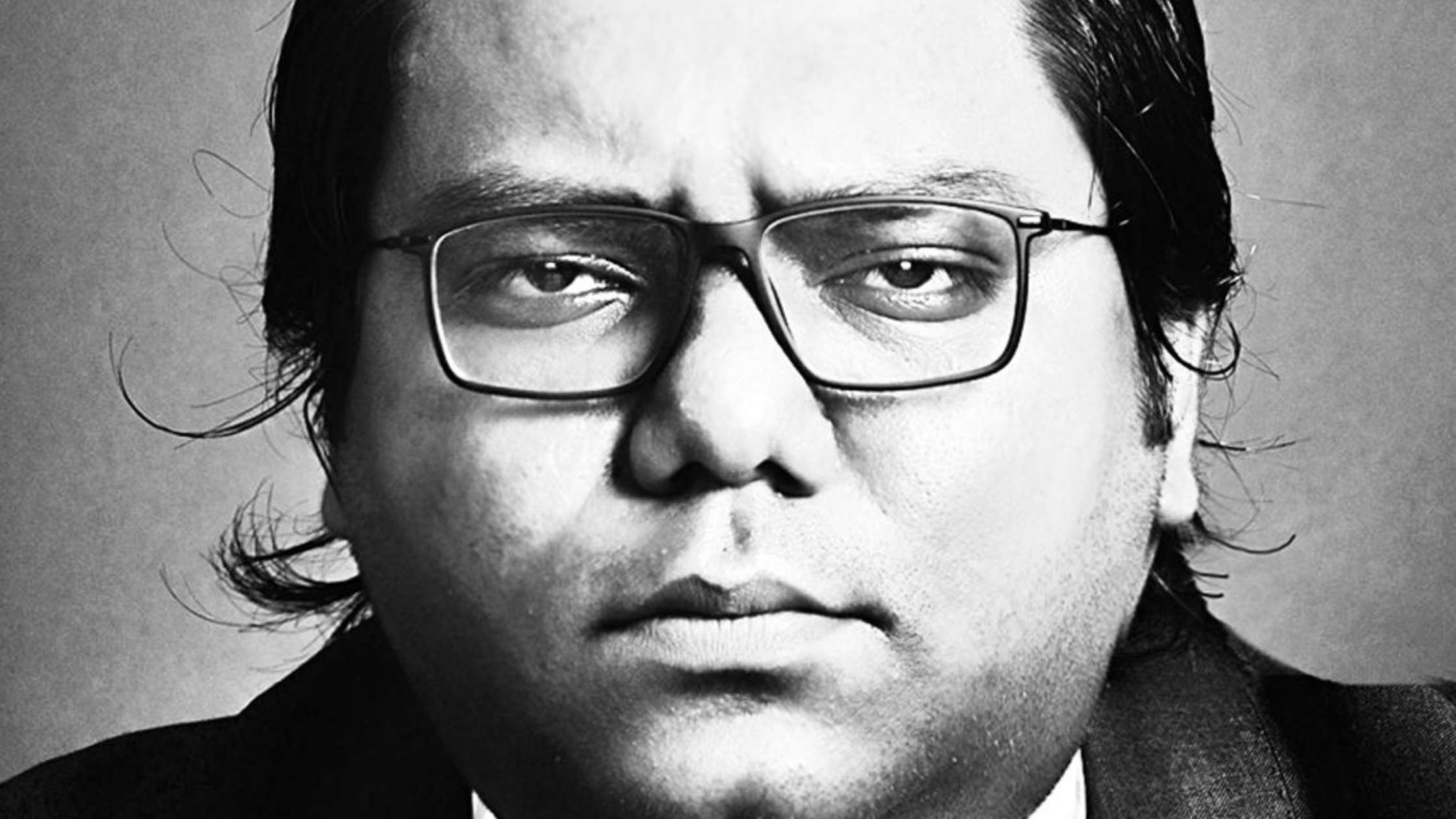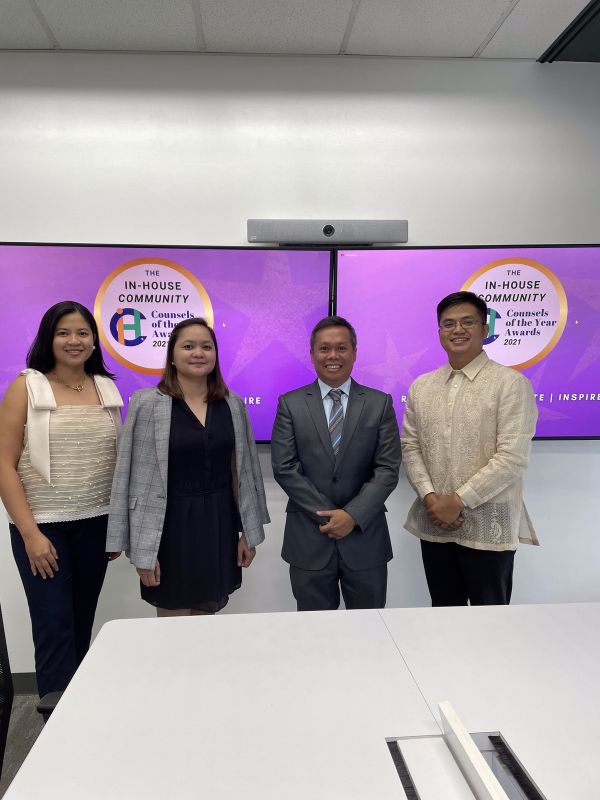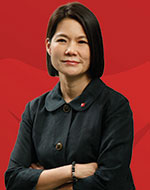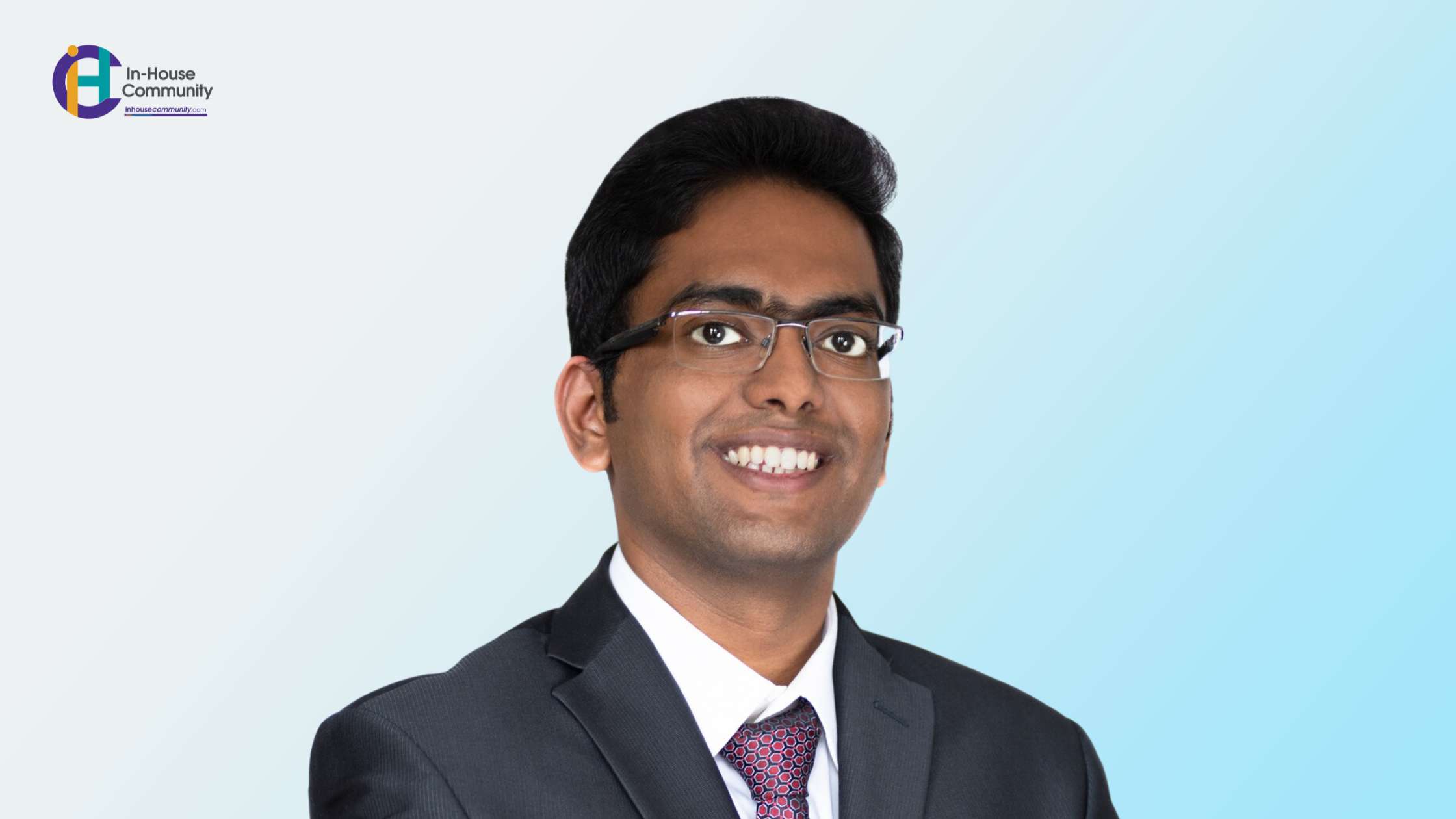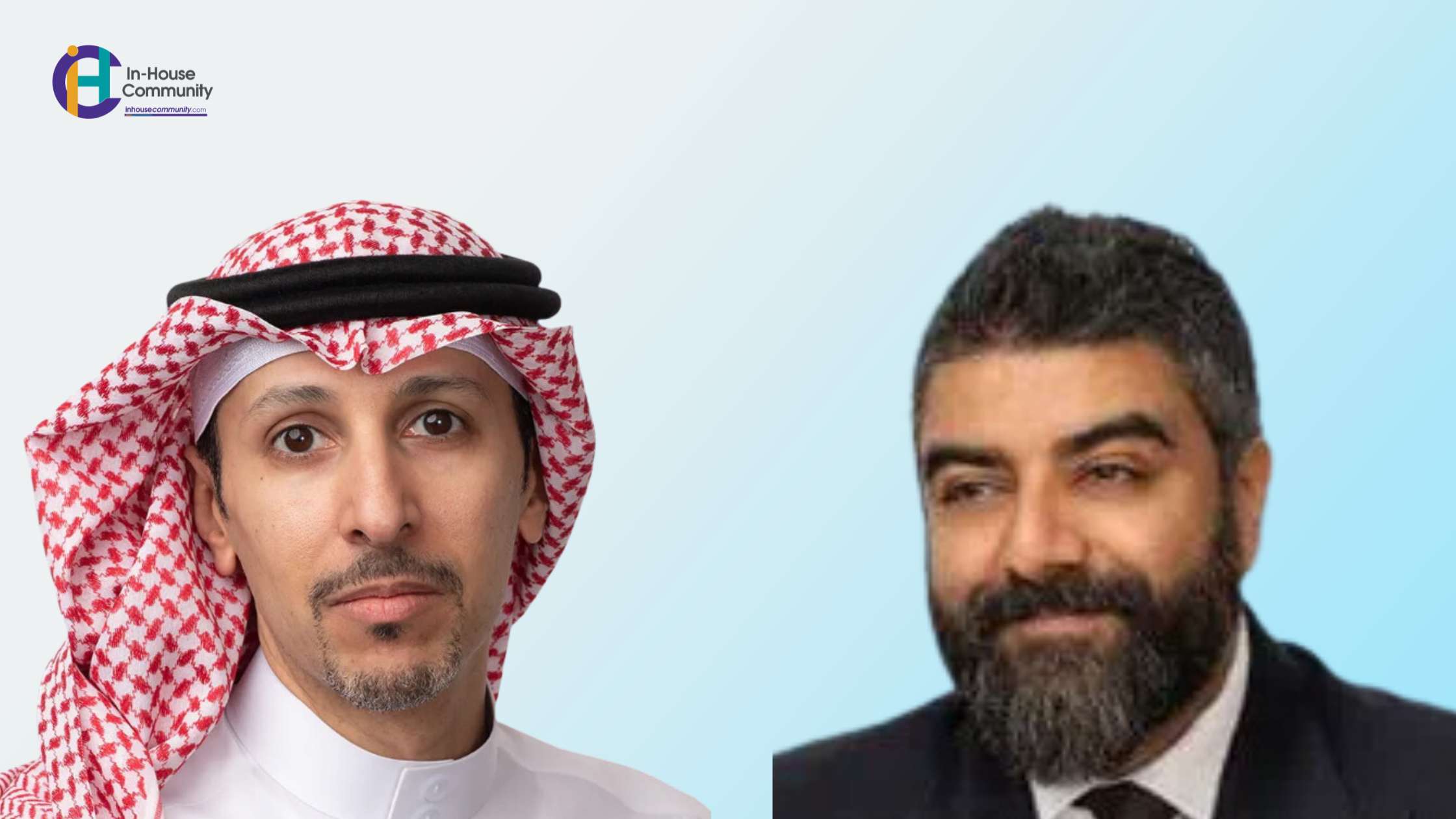Asian-Counsel sits down with Carlo van den Akker, General Counsel for Asia with NXP Semiconductors Singapore Pty Ltd, to discuss everything from hidden microphones and toasting moutai to why, when it comes to obtaining legal services, he would rather be a big fish in a smaller pond.
 Although destined to be the fourth generation in his family’s printing and publishing business, a string of choices at school instead led Carlo van den Akker to a career in the law. “When I was at grammar school in Holland, we had to choose between studying Alpha (languages, including Latin and Greek) or Beta (science), and I went with Alpha as I liked languages,” he recalls. “I was then required to choose whether I wanted to study sociology, theology, history or law.” Although the family business beckoned, Carlo van den Akker considered other possible job prospects when making his selection. “I was not overly enamoured by sociology or theology, and whilst I was interested in history, it was never something I could foresee myself doing as a full-time job. That only left the law,” he says, “and although the choice was more by default than anything else, as it turned out I loved it!” Upon completing his studies, van den Akker had little trouble when it came to choosing between an in-house role and a career in private practice. “I didn’t want to join a law firm after finishing my studies as I felt that the work would be ‘too legal’,” he says. Eager to gain business experience and the opportunity to travel, he instead opted to join Shell, lured by a promise that the company would send him to Saudi Arabia after three years. Although a change in management resulted in the promise being broken, he has ultimately enjoyed a long and varied in-house career ever since, and continues to do so. After three years at Shell, van den Akker joined Philips Electronics, and in addition to providing a solid grounding in in-house legal matters, his early years at the company spark some interesting tales. “As a junior at Philips, I was really dealing with the leftovers of the Iron Curtain,” he says. “I still remember having to go to Bulgaria on one of the early trips, and finding microphones behind some of the paintings in my hotel room. The frequent trips to Bulgaria and Yugoslavia also involved a lot of vodka. It was exciting for somebody in his twenties. I loved James Bond movies, and in some ways it felt like that was the reality,” he recalls fondly. Van den Akker was then put to work on the company’s Asia Desk for five years, which involved spending six months of every year travelling to China to work on Philips’ joint ventures, in addition to undertaking IP licensing work in Japan. “It was during this time that I learned the real skills of a negotiator, especially with respect to Chinese companies,” he says. They were not the only skills to be developed. “Philips was one of the first companies to undertake joint ventures in China, and it was not always what one expected,” he notes. “I still remember doing a deal in an empty factory in Dalian in freezing conditions during winter. And I soon learned that successful ventures required a whole range to steps in addition to the negotiations, from talking to customs and the tax man to drinking glasses of moutai, over which deals were often sealed.” In 1996, van den Akker moved internally to take responsibility for the global legal department of Philips’ medical division for five years, a time he loved owing to the fascinating high technology that was being created. He was then relocated to Singapore (and subsequently Hong Kong) in 2001 to cover legal for all of the company’s businesses across Asia. At the end of 2006, Philips’ semiconductor business was sold to some US private equity firms and renamed NXP Semiconductors, and van den Akker then moved across to take on the role of General Counsel for Asia for the new entity, bringing him back to Singapore. It has not all been smooth sailing since. “Semiconductors is a very cyclical business,” he says. “We had to undertake some major divestments in the first two years, and were forced to lay-off many people in 2008 and early 2009 across the company.” NXP’s employees now number some 27,000 across the globe, and the company generated a turnover of around US$4 billion in 2009, yet the legal function is, these days, comparatively small. Van den Akker, one of three General Counsel across the globe who have responsibility for a particular region and report into the global head on the company’s Board, leads a team of only four in Asia. “I have one lawyer in Shanghai, whilst the other three work alongside me in Singapore,” he says. “Together, we oversee Legal and Compliance for the company’s factories in China, Malaysia, the Philippines, Taiwan and Thailand and for Sales all over Asia.” And in spite of the lean composition of the Asia legal team, van den Akker is quick to point out that he only uses external counsel when absolutely necessary. “I try to avoid law firms,” he says, explaining, “They don’t always tend to understand the nature of the semiconductor business.” His own comprehension of semiconductors is undoubtedly enhanced by the hands on nature of his role, plus the fact he was initially made Country Manager for Singapore, Malaysia and the Philippines for three years, which hastened his familiarity with the business and presented opportunities to speak with the governments in those countries. When outside engagement is unavoidable, he usually selects a medium-sized firm to take on the work. “Philips always wanted the biggest, but NXP is a smaller company, so by choosing a medium-sized firm I am ensuring that the company will be viewed as a bigger fish in a smaller pond. Plus I can get competitive prices and, more importantly, get the firm’s better attention.” Van den Akker agrees that by minimising his use of law firms, he inevitably increases the operational aspects of his role. But it is work from which he often derives satisfaction, and which presents ongoing challenges. “For instance, we are increasingly dealing with a lot more compliance-related work,” he says. “Whether a complaint has been received from someone outside the company or within, we are obliged to take it seriously. It may be frivolous, or it may be true… you just don’t know. Actually, I spend quite some time on compliance matters.” When the legal team does get wind of a complaint, van den Akker is keen for certain procedures to be followed. “I will always arrange to have a coffee or a meeting with the complainant/whistleblower offsite, as the atmosphere is more relaxed and I’m therefore likely to get more information,” he says. “I ask for specifics, and be positive that the person has the courage to come forward. And, of course, I take every complaint seriously.” Instinct also has a role to play. “It is not so much about whether something is wrong but more whether the complainant believes something is wrong,” he says, “regardless of whether in the end the complaint has led to any action or not. We try to keep the threshold low for people to come forward.” And how does NXP, with so many factories and personnel in Asia, try to discourage breaches in the first instance? “We give specific training to everybody regularly, and the legal team undertakes legal audits in all the factories, including their first tier suppliers. From a compliance perspective, we’ve found that regular refreshers are necessary or otherwise the message doesn’t gel,” van den Akker says. “We also find, when doing Business Code of Conduct training, that real life cases work best, or people may get bored.” AC |
IN-HOUSE OPINION: If you are an in-house counsel and you have a comment or an opinion you’d like to share either on this article or its subject matter, contact us at: inhouse@inhousecommunity.com with the article title in the subject line, stating clearly if you wish your comments to remain ‘Private’ or ‘Anonymous’.




